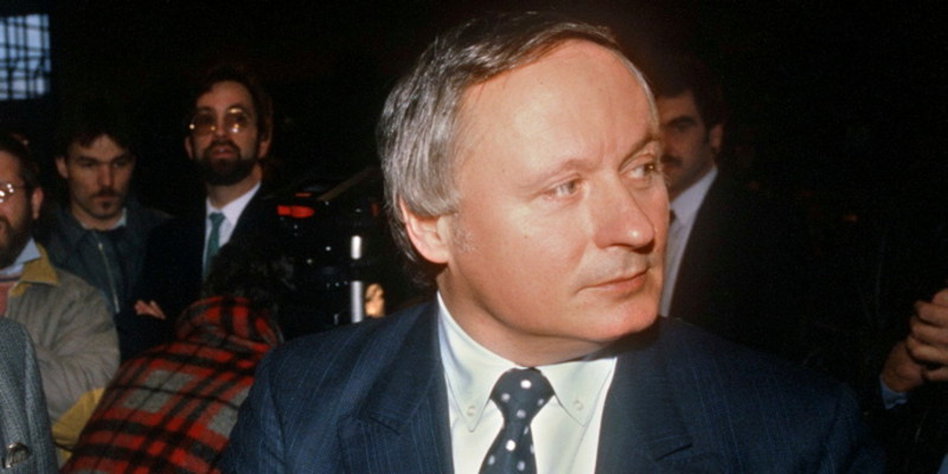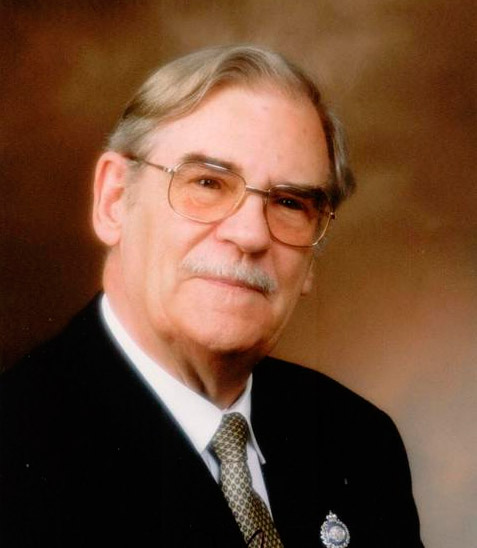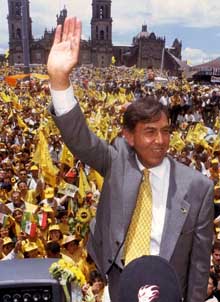Post-War Germany Part 2: 1993-1996
One important event which took place in the new Germany was the rearrangement of inter-state borders in the country. Besides a couple of border adjustments in Rhineland-Palatinate, most border changes had taken place in the “New States” of Germany, most noticeably in Saxony-Anhalt, which had borders set similar to that of when it was a province of Prussia, along with the reconstituted state of Prussia itself, made up of former Brandenburg, and Germany’s new Polish territories except East Prussia, which had gone its own way.
The debate over the reconstitution of Prussia in particular is worth attention.
Prussia during the Weimar Republic
Almost every German was on board with the reconstitution of Prussia, though how was the major sticking point. While many in former East Germany were fine with the idea of bringing Prussia back to the size it had reached during the days of the Weimar Republic, (who would largely be living in Prussia), much of Western Germany, and the southern states like Bavaria and Baden-Wurttemberg were furious with the proposition, and called for a more toned down version of Prussia centered in the east, closer to a glorified Brandenburg than anything else. The debate in the Reichstag and Reichsrat was strong, with East Germans in favor, and Westerners against, Southerners even more so. No state should have too much power, they said. Though their detractors shot back. Many Easterners and many of the more extreme Freyists called for a full restoration of Prussia, bringing back a glorious state and fitting for the restored Germany. In the end, it was Gerhard Frey himself, who remained mum on the topic until then, who decided to compromise. Addressing the Reichsrat, a member in his seat and fervently called for a full restoration of Prussia, claiming that Prussia was “The heart and soul of Germany.” Frey responded, “Well that is true, but Germany needs a liver as well!” He offered his solution to the problem. The new Prussia would consist roughly of the former East German state of Brandenburg combined with the newly retaken lands to the east, except East Prussia, which would be spun off as a state of its own. Neither side was happy, but the compromise was acceptable to both sides. Many were angry though that the Prussian heartland in Konigsberg was left out of the new Prussia but they were ignored. Prussia was back, and it was looking to the future along with the rest of Germany, with hope..
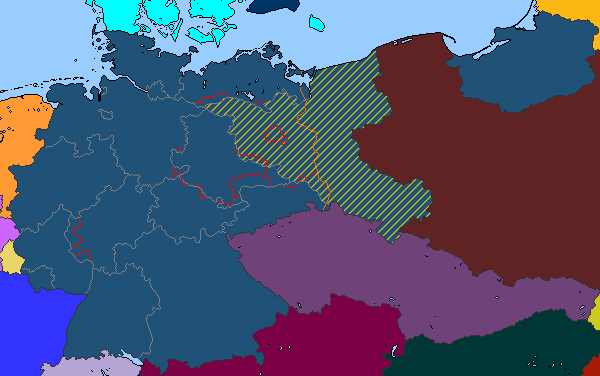
The new German borders. Prussia hatched in yellow, old state borders shown in red, with the new borders shown on top in gray.
The Kaiser was not the only king to see restoration to his throne after the Third World War. On the contrary, some states seeing the example of the Kaiser, decided to restore their own monarchs to the throne. This was not encouraged by the Liberty Party, who only recommended the restoration of a largely powerless Kaiser to serve as a rallying point and source of stability of the nation, as well as the fact that they were seeking to right the wrongs of the Second World War, not the first. This had still happened anyways in many states with historically pro-monarchist sentiment, and in former Soviet occupied East Germany. It had received a wave of nationalist sentiment in the wake of their liberation by the Allies, and found itself enamoured with the idea of monarchical restoration. Bavaria being the major exception. Besides Eastern Germany, Bavaria had always fashioned itself to be unique from the other German states, Bundy famously calling it “The Texas of Germany”. Even pre-war it had a budding monarchist movement which was beginning to take on steam as time went on. The current Duke of Bavaria, Albrecht, was 88 and in poor health, and renounced any claim to the kingship. His heir Franz, the new head of the House of Wittelsbach, had at first announced he too would not be seeking to return to the throne, but eventually changed his mind soon after he realized that the idea was gaining popular support in the state. In 1993, opinion polls were beginning to show a majority of Bavarians in favor of such a move. The Minister President of Bavaria at the time, a LP party member named Guenther Beckstein, evidently disagreed with such a maneuver however, saying that the measure was wholly unnecessary, serving no purpose for the Bavarian people as they already had the Kaiser. However, after his Deputy Minister President, Max Streibl, was later caught up in a corruption scandal dubbed the alliteratively titled “Amigo Affair”, he soon found himself that same year being voted out later on by fellow LP member, Edmund Stoiber. Stoiber ran on the promise of clean government and promised a referendum for the Bavarian people over the idea of restoring the monarchy. The date was set for July 8th 1994. The federal Liberty Party was neutral in the matter, with Gerhard Frey himself keeping mum on the issue when asked of it in interviews, stating it was up to the Bavarian people and none of his business. Kaiser Georg himself advocated for the return of the Bavarian monarchies, and hinted at support for other restorations as well, but in the end, had echoed Frey’s sentiment. The Bavarian Liberty Party itself was split on the issue. Moderate Freyist voters, those who had voted for Franz-Josef Strauß and the CDU/CSU prior to its collapse and his suicide, were for the “No” vote, agreeing with former Minister President Beckstein about the vote. The minaprogressive FDP had endorsed the “No” vote as well. Less moderate LP voters along with the SDP, beginning to trend towards more Freyist policies, had supported the restoration of King Franz and the House of Wittelsbach. The referendum was expected to be close, with the “Yes” vote dealing with a lack of support on the national level from the Liberty Party, while the “No” vote did. Despite that though, the idea still had popular support from many from all sides of the political spectrum. Many were still expected the “No” vote to prevail due to what political analysts in future years would call the Shy Bundy effect. [OTL’s Shy Tory effect].

In the end, the vote ended in favor of the pro-monarchy side. Franz Bonaventura Adalbert Maria Herzog von Bayern was crowned King of Bavaria in August 5th 1994. Albrecht, old enough to remember when his grandfather, the last king of Bavaria before then, had reigned, said later it was the highlight of his life. He died later that year.
Bavaria wasn’t the only state in Germany to see a rise in monarchist sentiment, and it wouldn’t be the last. Seeing the success of the Bavarian movement, the other state with the highest monarchist sentiments of the country had its own turn. That state was Saxony. Ruled by the House of Wettin since the 1420s until 1918, the state had seen an awakening along with much of the rest of liberated East Germany in the wake of the Third World War of nationalism and to a lesser extent, monarchism and religion. The Minister President in this case had been a whole hearted supporter of the “Yes” vote, and the Liberty Party dominated the elections there. The vote in Saxony went without any major surprises, when the day of the referendum passed on November 15th.
The 69 year old Maria Emanuel had been crowned King of Saxony.
Prince Maria
Not every state was on-board with the pro-monarchy trend however. Pro-Oldenburg monarchists failed to even gain the attention of local politicians, while polls in former Hanover showed the idea of bringing back the ruler of Hanover/Brunswick to be a lukewarm proposition, with two fifths seriously in favor, and the local state LP, SDP, and FDP against. This was not even to mention the other minor monarchies in Germany which were not even given the thought thanks to lack of mobilization or interest from locals. This included every former principality of the Kaiserreich, and to some extent the duchies and grand duchies, (of the latter, only Mecklenburg’s gained much steam, though it met the same fate as Hanover/Brunswick’s.) Indeed, only two other movements were taken to a further extent then that; the states of Thuringia, and Baden-Wurttemberg (conveniently enough, the heirs to both thrones had recently married). Thanks to strong turnout from LP voters, the referendum would prove to be close, though they had to contend with lower than expected turnout, and many moderate SDP and LP voters, as well as minaprogressive FDP voters that were unanimously in opposition to the idea of restoration.
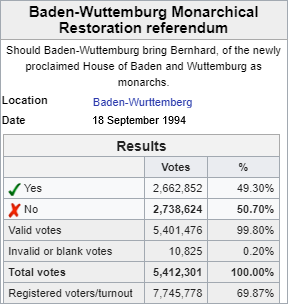
It was a close vote, but it failed in the end. Monarchists in Baden-Wurttemberg would have to hope for another day.
An unexpected place to find neo-monarchists, Thuringia had not been united until the time of the Weimar Republic, and before then had been referred to as a region of Germany itself instead of a unified place. Indeed, at the time that the Weimar Republic was set up, there were not one, not two, but four rulers in the area. However, the Albertine branch of the House of Wettin had died out just a few years prior, leaving only three. Either way, the liberated state in former East Germany had been swept up in the same wave of monarchism which took Saxony. A surprise announcement from the monarchs involved made the idea more imaginable in their eyes. In a joint statement however, the heads of the three remaining branches of the senior Ernestine line of the House of Wettin, Michael, Prince of Saxe-Weimar-Eisenach, Friedrich Josias, Prince of Saxe-Coburg and Gotha and Konrad, Prince of Saxe-Meiningen, declared that two of them would be abdicating their claims to their respective thrones and giving them to the third. Konrad, a successful businessman and banker, decided he would rather continue having his job then attempting to get his house restored. Friedrich Josias felt too ill to carry the duties of a monarch, and his heir Andreas had a life in Sweden with the royal family there. Both sold their assets to Michael, who would become the sole monarch in Thuringia if he had public support.
On the fence before the announcement, much of the local legislature as well as the Minister President fell behind the proposal, and it was put to vote.
Thuringia now had a duke of its own. Each of the newly restored monarchies were recognized by the federal government for their roles, and each state involved were renamed, Bavaria, as an example, renamed itself as the Kingdom of Bavaria, etc. The roles of each of the monarchs were less than that of even the declawed powers of the Kaiser himself in these states, but they served as rallying points to the general populace in those states, often promoting local culture, supporting charities, and allowing local officials to focus on more important things.
---
The 1995 German Imperial Elections
669 Seats including party overhang. 335 needed for a majority.
Before LP 427 SDP 101 FDP 26
Afterwards
LP (Gerhard Frey) 340 SDP (Oskar Lafontaine) 229 FDP (Otto Graf Lambsdorff) 100
Frey and the LP won, and held their majority, but could no longer amend the constitution However, uncertainty over what the LP stood on economics led to more left-wing/centrist voters to return to the SDP over the issue of the minimum wage and economic liberals (in the Adam Smith sense of the term) going over to the FDP which campaigned against the increase in Child care benefit growth, and calling military spending as irresponsible considering the existing massive post-war deficits. The FDP also campaigned on being tougher on ex-Communists, which won the support of vengeful voters, while also acting as socially minaprogressive. Both worked together to attack the LP on economics, but this was ridiculed by Frey in his campaign speeches after he stated the obvious: if they won, they’d have to form a government, with all of the compromise, especially considering their very different views, and bureaucracy that would entail”
On an electoral level, the Liberty Party spent a relatively high amount on recently administered East German territory. While this had led to worse showings in West Germany, it did build a long term relationships with many ex-Communist voters. Many appreciated the aspirational pull of Freyism and its redemptive arch and that the Liberty Party had been relatively soft on ex-Communist officials outside of the upper hierarchy.
The SDP was, to be blunt, shocked. They had predicted victory for sure, according to their models and polls. The failure of their strategy of “moving left to move to the new center” was blunt. Socially liberal and anti-establishmentarian voters had flocked to the FDP over their traditional home in the SDP, because of SDP wavering on the issues of monarchism. East Germans liked the national pride the LP and Frey had given Germany, and were grateful for unification. Labor leaders, while they disliked the repeal of the minimum wage, appreciated the grandiose public spending that Frey indulged in. It was clear that change was needed, and an “embrace of the new reality”.
They had, to be fair, won over support from some of the Leftists that had moved over from the Freyist Cause. One social democrat who had done well with this demographic, Rudolf Scharping, known for being more defense-oriented than other SDP members, had went on a speaking tour and media blitz after the election promoting SDP ideological change towards a “Freyist Sensible Social Democracy”. One that adopted the aspirational parts of Freyism, and the pro-German aspects, with “sensible” social democratic reforms to the economy that “promoted sustainable growth for all”. Scharping was fundamentally non-ideological to a degree and understood Frey’s rise better than most Social Democrats. He had the look and feel of a Chancellor, but his future remained to be seen.
Were bright things ahead?
The FDP, meanwhile, received by far their best showing in history, in what was the biggest surprise of the night. Lambsdorff campaigned on “freerer markets and common sense.” Their anti-Communist, pro-Mittelstand (e.g.criticizing the construction of opera houses over tech infrastructure), socially minaprogressive, anti-establishment, pro-peace campaign had worked. They drew from both the economic right flank of the LP, along with moderate Social Democrats who were nervous with the “new” SDP and felt that the FDP stood more concretely against Frey as a non-Freyist outsider party. In particular, FDP attacks on lax de-Communification played to the fears of many, especially in West Germany, although they were pilloried as hypocritical. Could the FDP do the unthinkable and be the majority in a coalition, or govern outright?
The FDP was estatic as Lambsdorff adressed his party
Many compared the 1995 German elections to FDR’s poor midterm showing in 1938. While the Liberty Party and Freyism still remained the dominant force in Germany, the post-war itch for new leadership still pulled strong and the pre-war conditions that lead to such dominance no longer applied. Moreover, the SDP and FP had forced the LP to back down from any further changes to the nation’s constitution. Successful rebuilding and national pride had kept the LP in power, now they had to make sure they knew how to wield it.
Frey knew he was most solid on foreign policy and “issues of the nation”. While NATO remained Germany’s premier defense organization, closer relationships, both economically and militarily, were needed.
Frey would marginally devalue the Reichsmark, a big deal in Germany, to increase productivity, hoping that inflation wouldn’t spike. Many feared that a currency war would emerge, to add unto the trade war, but so far so good. The German economy responded positively and inflation did not pick up too much. However, criticism emerged from both the FDP and SDP that Frey was abandoning traditional German ordoliberal policy (though the FDP did too in its "freeish market" outlook, as Der Spiegel would point out) and the German Mittlestand, the core of Germany's "economic heritage".
Kaiser Georg also visited England and met with King Charles and Minister Churchill in a move to establish better relations. Georg, in a rare discussion of policy, asked for a mutual trade agreement and friendly relations between the United Kingdom and Germany, which would be discussed, but nothing yet formal signed. The EEC, and issues regarding it, are what's keeping the UK and Germany from signing a deal (since all trade is through the EEC) and most of the other members of the EEC didn't take kindly to the UK after the "No" vote.
In 1996, Frey began to revive the economy by signing a treaty of friendship, military arms deals, and economic alliance with Poland, Lithuania, Latvia, Ruthenia, Estonia, and the F.R.R. In addition, growth shooted up as reconstruction concluded and innovation began.
The EEC approved of, and quickly signed onto, the initial agreements Frey made with Poland, Ruthenia, etc. because of the poor economic state most of the members are in as a result of the trade war (beggars can't be choosers as
The Economist put it).
Slowly, a Freyist Power block began to emerge, a block that would be forged in the first crisis of 1997.
[A/N:Coming soon, also thoughts?]
EDIT: Post 1995 Diagram


